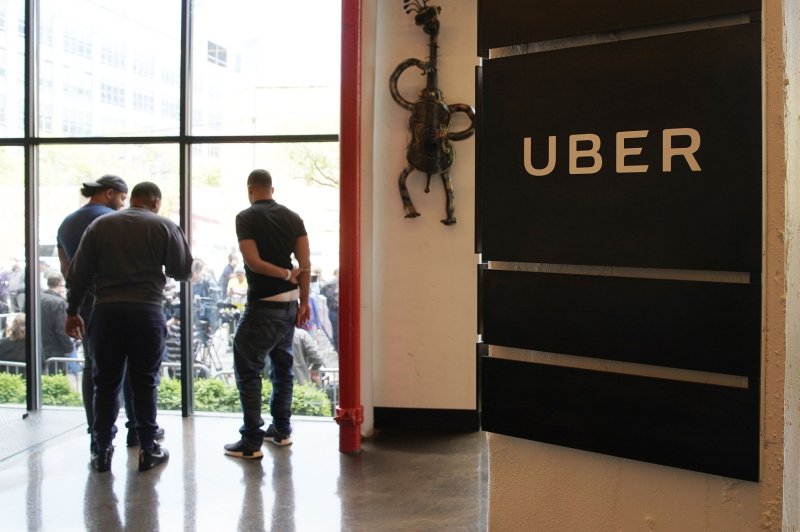Uber owes $649 million in back taxes to cover unemployment and disability insurance taxes, the audit found. File Photo by John Angelillo/UPI |
License Photo
Nov. 15 (UPI) -- The state of New Jersey says ride-sharing company Uber owes nearly $650 million in unpaid employment taxes, because it mistakenly classified its drivers as independent contractors.
An audit by the state's Department of Labor and Workforce Development found that Uber had failed to pay $530 million in unemployment and disability insurance taxes between 2014 and 2018. Interest and penalties on the unpaid amounts, it added, totaled another $119 million.
Uber classifies its U.S. drivers as self-employed contractors, not employees, a designation that allows the company to avoid providing benefits. Although the New Jersey audit refers only to unemployment and disability insurance, it says state law also requires Uber to pay minimum wage differences and extra pay for overtime.
New Jersey is one of several states that have questioned Uber's employment and payment practices. The New Jersey case is the first in which a local government has sought back taxes from Uber.
The New Jersey Senate took up legislation last week that would force certain businesses to classify workers as employees and require they provide basic protections and benefits like overtime pay, healthcare and unemployment insurance. The labor costs of ride-sharing companies could rise as much as 30 percent if the bill succeeds in becoming New Jersey law.
"Over the past year alone, misclassification has cost New Jersey businesses $300 more per employee because of employers not properly funding the Unemployment Insurance Trust Fund," said Labor Commissioner Robert Asaro-Angelo. "Our 244,000 employers who play by the rules should not have to give a free ride to those who don't.
Additionally, employees who are wrongly classified as independent contractors in effect pay double FICA taxes because they pay both their own and the portion that their employer would have paid if they were properly classified."
The Internal Revenue Service requires contractors to pay a self-employment tax.
Earlier this year, Uber disagreed with the idea that its drivers are employees and requested a legal review of the issue.
The Third Circuit Court of Appeals ruled in September that a New Jersey federal judge erred in saying Uber drivers automatically failed to qualify for the interstate-commerce exemption. That separate case was filed on behalf of Uber drivers who argued they should be paid overtime.
Uber and other ride-sharing services regard their business as an online clearinghouse to match drivers with riders. A new law in California could require the companies to designate drivers as employees, and similar legislation is under consideration in New York, Washington State and Oregon.















